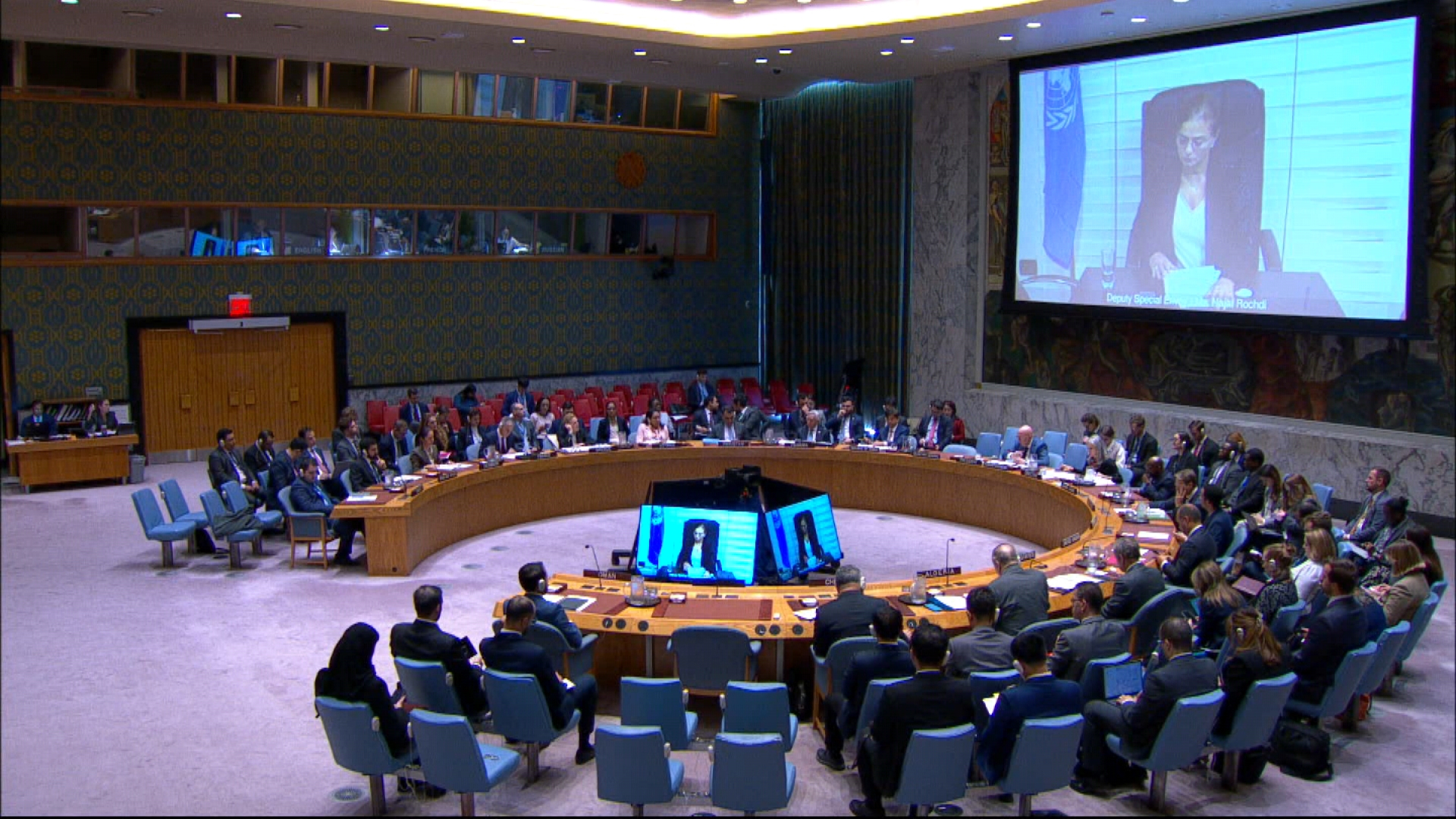
The United Nations renewed its call for international cooperation to help Syria recover from over a decade of war, warning that dwindling aid threatens millions of people relying on its support. On UN Day, the UN Office for the Coordination of Humanitarian Affairs (OCHA) reiterated that its mission in Syria remains focused on “helping communities recover, rebuild, and look to the future with resilience,” urging global solidarity “for peace, recovery, and a better future for all Syrians.”
Ramesh Rajasingham, director of OCHA’s humanitarian affairs division, told the UN Security Council on October 23 that the crisis in Syria “is not constant,” with fresh clashes, natural disasters, and economic collapse continuing to deepen humanitarian needs. He cited renewed fighting in Aleppo province that displaced families, and worsening shortages of food and fuel in Suwayda. Over 70% of Syrians now depend on humanitarian aid, he said, while funding has fallen to its lowest levels in years.
Funding Gaps Threaten Food Security and Services
The UN World Food Programme (WFP) warned food assistance to Syria could stop in early 2026 unless $84 million is secured by December. The agency provides monthly support to 3.5 million people, including 1.2 million through emergency aid, and operates a subsidized bread project that benefits roughly 2 million. Halting this program, the WFP cautioned, would “exacerbate hunger, increase social tensions, and undermine stability” in fragile areas where refugees have returned.
Rajasingham reported that the UN and its partners currently deliver aid to about 3.4 million people per month, a 25% increase from last year due to improved access. However, he said the Syria Humanitarian Response Plan is only 19% funded. This shortfall forced water transport suspensions in Raqqa and could soon halt services in Hasaka. More than 340 health centers have also closed, leaving seven million people with reduced access to care.
Rebuilding and Education: A Path Toward Recovery
While the humanitarian situation remains dire, UN agencies continue to invest in early recovery and education. The UN Development Programme’s Deputy Representative in Syria, Rawhi Afghani, told Agence France-Presse (AFP) that rebuilding the country “is in the interest of both Syrians and regional stability.” He described Syria’s reconstruction needs as “enormous,” with housing, schools, and hospitals in critical condition and cleanup efforts hindered by unexploded ordnance.
UNICEF has expanded its “Return to Learning” campaign, including a tent-based classroom project in Salma, Latakia province, where over 120 children have returned to education after years of displacement. Project director Rania Qalaa said the temporary classrooms, supported by UNICEF and local partners, are a “bridge until destroyed schools are rebuilt.”
Winter Worsens Conditions for the Displaced
The approaching winter is compounding hardship in camps across northern Syria, where 1.5 million displaced people still live. According to the Syria Response Coordinators team, 95% of families cannot afford heating fuel, while nearly three-quarters plan to cut back on food to stay warm. The team urged the UN and humanitarian groups to “accelerate the launch of winter projects” to prevent another season of suffering.
Rajasingham concluded that Syria’s path to recovery depends on ending violence, increasing aid funding, and investing in long-term reconstruction. “The road to Syrian recovery is possible,” he said, “but it requires real international will and the continued flow of humanitarian aid during this transitional period.”








